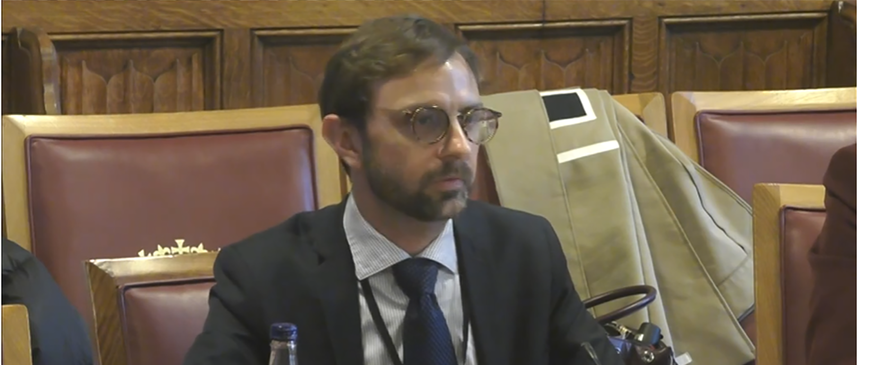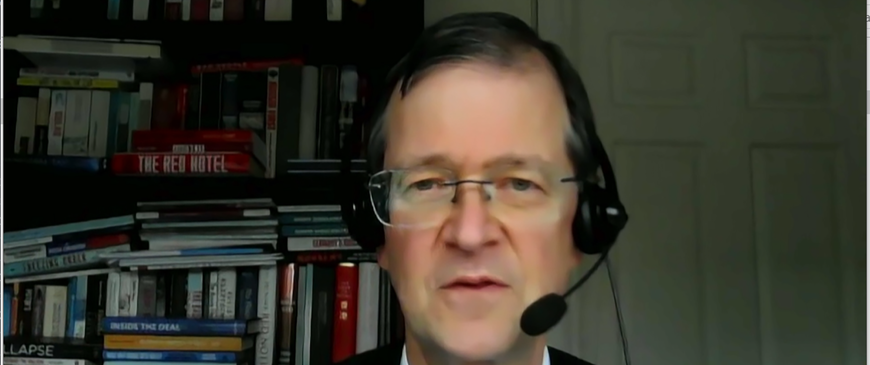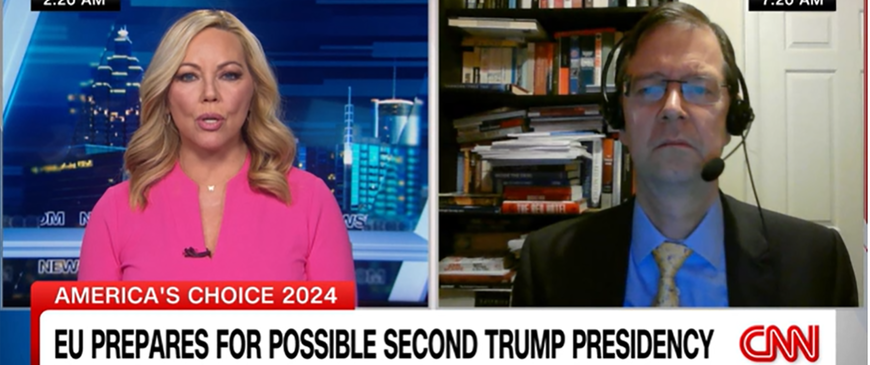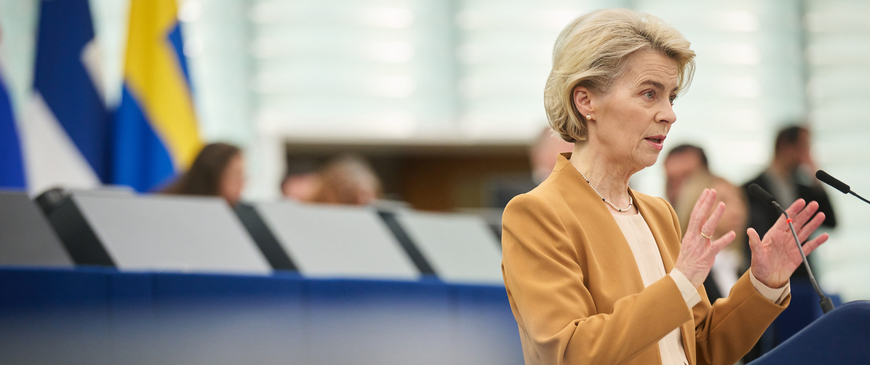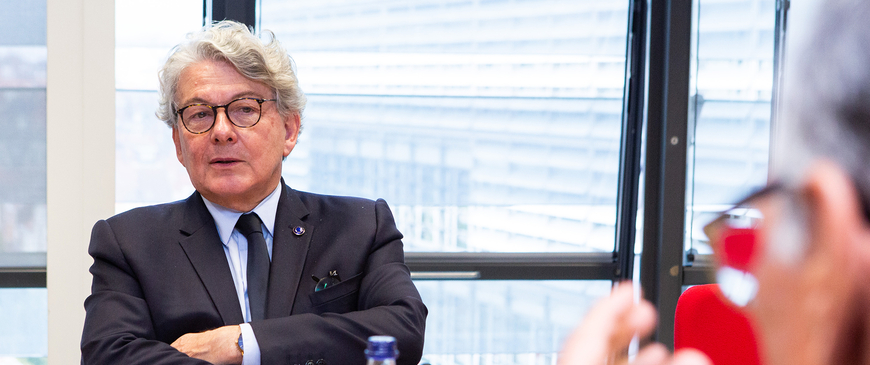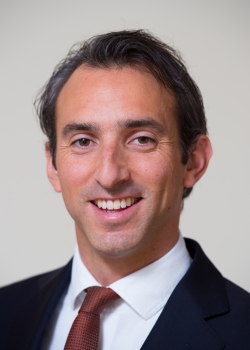Press
'More work' needed in Brexit talks as polls hint UK to stay in EU
02 February 2016
Deutsche Welle
"I'm a bit hesitant to give the renegotiation too much weight, the reason being that the changes Cameron can secure are relatively minor," Christian Odendahl, chief economist at the CER told DW."I think the results of the renegotiation matter only insofar as they can be portrayed as a success. Cameron and his advisers will of course claim that he has secured a good result, while the die-hard euroskeptics will say the opposite."
EU referendum: How PM's 'red card' deal will work
02 February 2016
The Week
Charles Grant, the director of the CER, said "given the current state of negotiations", the British side "would probably be happy" with the proposal.
"But the devil will be in the detail – the question is, who will have control over the brake, under what conditions can it be activated and how quickly could it come in to force?" he added.
"But the devil will be in the detail – the question is, who will have control over the brake, under what conditions can it be activated and how quickly could it come in to force?" he added.
David Cameron seeks to win round central Europe to EU deal
02 February 2016
Financial Times
Agata Gostyńska, EU affairs analyst at the Centre for European Reform, said Poland had to show resistance because being seen as too accommodating risked backfiring with domestic opinion. "For the moment it seems there is enough flexibility in the text for both to claim some victories. But the devil is in the details, and what Cameron and Szydlo will be discussing."
UK 'Holding a gun' to EU as Cameron aims for early referendum
31 January 2016
Bloomberg
"If Britain votes to leave it will be a seismic event," said John Springford, senior research fellow at London's Centre for European Reform. "Cameron's strategy of having a renegotiation and then a referendum has been felt by the other leaders as essentially holding a gun to their heads; there's been resistance to allowing Britain to set the terms of the future direction of the EU."
Deal or no deal? Cameron bid to reform EU hits fresh obstacles
30 January 2016
The Guardian
Charles Grant, director of the CER, says the emergency brake is fraught with difficulties. "British officials want to be able to use the brake immediately. Yet the mechanism could well require EU legislation, which often takes more than a year. Second, according to what criteria would use of the brake be permissible? The British will want the criteria to be vague enough for them to be able to pull it easily; the commission and other member states will try to make the criteria objective and hard to satisfy."
Radio 5 Live Daily: David Cameron's benefit proposals
29 January 2016
Charles Grant, director of the Centre for European Reform discusses David Cameron's proposals on benefits (listen from 10.37).
Daily Politics: Cameron's Brussels renegotiations
29 January 2016
John Springford joins the Daily Politics show to discuss David Cameron's renegotiation efforts in Brussels (from 7.43 mins).
Business is better off in the EU – now it's time to say so
28 January 2016
City A.M
The Centre for European Reform has shown that the "EU effect" boosts goods trade with the EU by 55 per cent. That works out at an average of £670,000 for every business that conducts goods trade with the EU.
David Cameron being offered watered down 'emergency brake' on migrants by Brussels
28 January 2016
The Telegraph
Charles Grant, director of the CER, said the deal, on the face of it, had the makings of a workable offer for Mr Cameron, but that its worth would depend on the details of any agreement."Given the current state of the negotiations, the British side would probably be happy to accept a deal that includes a four-year 'emergency brake' on benefits," he said.
Schengen: European Commission insists border controls will 'save' passport-free zone
27 January 2016
The Independent
"From a practical point of view, there are crossing points all over the place," said Camino Mortera-Martinez, from the London-based CER. "Just because you have border controls, it does not mean you cannot travel freely. You can move freely, but sometimes you might be controlled. Member states are not planning to put up barbed wire and build walls."
De EU piept en kraakt. Maar kan zij ook breken?
27 January 2016
NRC Handelsblad
„De handelsbelangen zijn te groot om helemaal terug naar af te gaan”, zegt Rem Korteweg van het in Londen gevestigde CER. ...„Stel: Schengen stort in. Wat zijn de gevolgen voor de interne markt? Je krijgt verwijten over en weer, de sneeuwbal wordt een lawine. ‘Niemand wilde dat het gebeurde, het was ook absurd, maar het gebeurde toch’ – de geschiedenis staat er bol van.”
The iceberg that could sink David Cameron's plans to keep Britain in Europe
26 January 2016
The Telegraph
For Charles Grant, the director of the pro-EU Center for European Reform, the risk is that the Chancellor may find himself “dressing up modest measures as if they were real protection for single market and City”, when in truth, they are nothing of the kind.
Refugee crisis: EU ministers vote to end passport-free travel
26 January 2016
The Week
But the Centre for European Reform argues that Europe should not dismantle Schengen – but rather improve the system by processing refugees more effectively, boosting external border security and sharing intelligence. It also suggests that the fake Syrian passport in Paris could have been a deliberate plot to reignite the debate about Europe's asylum policies.
Business case to take centre stage in EU debate
25 January 2016
ITV News
Research by the Centre for European Reform that found Britain's goods trade with the EU is 55% higher as a result of its membership will be used to support Britain Stronger In Europe's case. The "EU effect" was worth around £133 billion to the 200,000 export and import companies in the UK in 2014, it said.
Britain should send soldiers to protect Europe's borders, EU leaders say
25 January 2016
The Telegraph
Britain Stronger In Europe highlighted research by the Centre for European Reform which found found that Britain's goods trade with the EU is 55 per cent higher as a result of its membership.The "EU effect" was worth around £133 billion to the 200,000 export and import companies in the UK in 2014, it said.
June EU vote would be a 'big mistake' says SNP's Nicola Sturgeon
25 January 2016
The Sun
Chairman Lord Stuart Rose said data showed being in the EU was worth £670,000 in extra trade for every firm exporting or importing within the bloc. It said Centre for European Reform research found goods trade with the EU was 55 per cent higher with membership. They claimed the "EU effect" was worth £133billion to 200,000 export and import firms in 2014.
Así se resquebraja el espacio sin fronteras Schengen
25 January 2016
El Espanol
"Estamos en un impasse porque es invierno y se ha reducido la llegada de refugiados, pero en un par de meses la presión volverá a aumentar y, si no se han tomado medidas, es posible que se produzca un efecto dominó de cierre de fronteras que acabe con Schengen", explica a EL ESPAÑOL la analista del think tank CER, Camino Mortera-Martínez, que cifra en un 51% las posibilidades de que se materialice este escenario.
Fears flurry of claims over UK’s EU membership will dismay public
25 January 2016
Financial Times
The Britain Stronger in Europe report quotes research by the Centre for European Reform in June 2014, suggesting that the UK’s trade in goods was 55 per cent higher because of EU membership and that membership has resulted in an average £670,000 a year extra trade for each business that exported or imported goods with the EU.
EU referendum: Sides clash on European market benefits to UK
25 January 2016
BBC News
Britain Stronger in Europe said one piece of research showed UK goods trade with the EU was 55% higher because of EU membership. The research, from the Centre for European Reform, suggested the effect of EU membership in 2014 was worth £133bn to 200,000 British firms that import and export.
Litvinenko murder: It may sound brutal but the UK government has moved on
22 January 2016
The Guardian
Ian Bond, director of foreign policy at the Centre for European reform, argues: "Putin is trying to trying to clear the middle ground. The aim is clear everyone off the battle field, save Daesh [another term for Isis] and Assad, and he can then say, 'Assad may be up to his neck in blood but he is not going to come after you in your cities.'"

